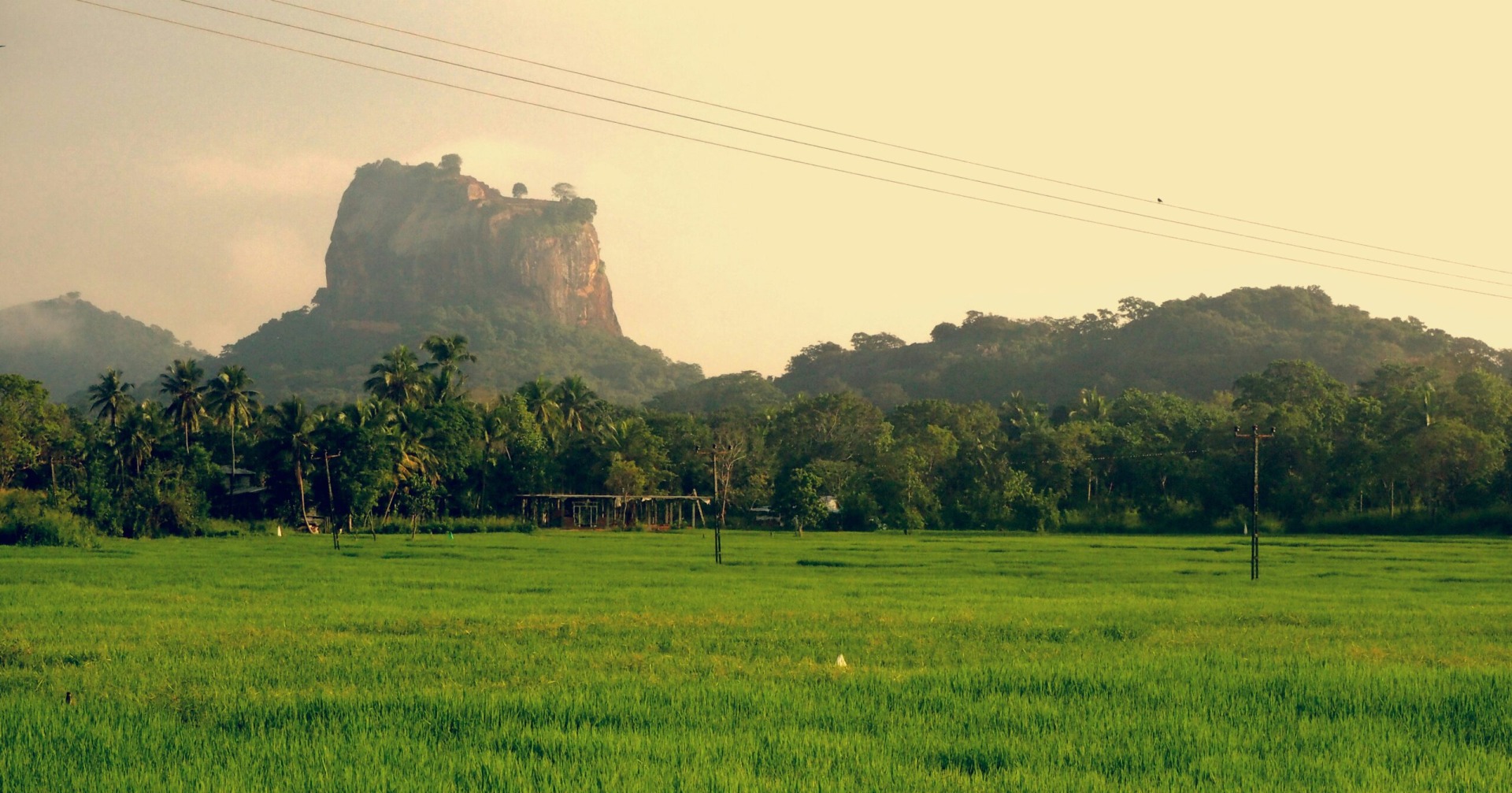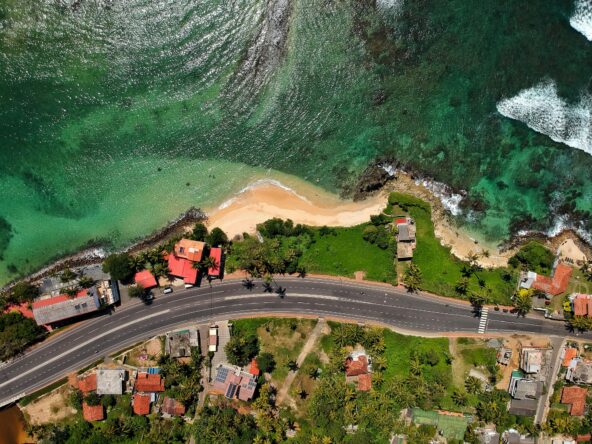Foreign real estate investors find Sri Lanka attractive for its stunning natural scenery, cultural significance, and tropical climate. Therefore, many travelers are tempted by the thought of buying a piece of this paradise to experience their vacation in a rural or coastal setting. However, there are certain guidelines and aspects to consider when buying land in Sri Lanka non-natively. Understanding the in-country currency exchange regulations, fees, and processes is critical to a successful and legitimate transaction.
This article explains the legal matters, purchase options, costs, and financial factors for non-citizens interested in buying land in Sri Lanka.
Rules and Regulations
In Sri Lanka, Law No. 38 of 2014 (Restrictions on Foreigners) is the provision that highlights several important restrictions on foreign land ownership. This provision protects the local’s interests by ensuring that the majority of the ownership of lands in Sri Lanka is their local hand. Below are some provisions mentioned in the Act.
Prohibition on Freehold Land Ownership:
To protect the national interest and allow local citizens to own the majority of property in the country, foreigners are not allowed to own freehold land in Sri Lanka under this Act. This means non-citizens cannot own the entire plot of land which is a key limitation for foreign investors looking to acquire property in Sri Lanka. This prohibition was introduced to protect the country’s resources and maintain local control.
Leasing options:
Regardless of freehold restrictions, foreigners are allowed to purchase lands on lease in Sri Lanka. The maximum period of lease is 99 years. With this provision, foreigners can use and manage real estate for a long period without owning it. This gives benefits for both locals and foreigners creating a better trade-off. This lease structure offers a practical solution for foreigners while respecting local regulations.
Company ownership:
Foreign investors can also purchase land through locally incorporated companies. The business is considered a local business and is free to buy land if it is less than 50% owned by foreigners. Through this way, international investors can make strategic indirect real estate investments in Sri Lanka. Foreign investors can take advantage of local resources and know-how, as well as navigate regulation more effectively by partnering with local individuals. It also provides an avenue for strategic investment while navigating the legal landscape.
Special Projects and BOI Approval:
For eligible projects involving significant investment, the Board of Investment (BOI) offers benefits and exemptions. The Board of Investment can provide more opportunities for projects related to land ownership and laws and increase the ability of foreign investors to participate in the Sri Lankan real estate market. Most of these projects are large projects such as business parks, hotels, or other projects aimed at improving the country’s finances.
According to existing regulations, nonlocals can participate in the real estate industry through one of the following methods:
- When renting out property
- By way of inheritance
- Receive gifts from parents
- As part of a private company that owns more than 50% of the country’s shares
- As part of a company listed on the local stock exchange
- When buying an apartment or apartment building (on any floor)
- When acquiring dual citizenship
Ways of Buying Land
In Sri Lanka, there are few methods for foreigners to buy land in various ways despite the restrictions. Understanding these options is crucial for making informed investment decisions. The main ways are:
1.Buying Freehold Lands
As mentioned earlier, foreigners are not allowed to buy land directly. However, they can follow the below options:
Joint ventures: As a foreigner one of the best ways to buy a freehold land is to establish a joint venture with a local company or an individual. With this foreigners can work with local businesses by holding the majority of the ownership while the land is owned by a local citizen. This partnership approach allows foreigners to more effectively navigate the legal system and benefit from local expertise. However, to protect the interests of all parties and specify the partnership model, clear legal agreements must be made.
Nominal Arrangements: In nominal arrangement a local citizen gets the land ownership on behalf of the foreigner. Although this can be a viable option, a proper legal agreement should made to protect the foreigner’s interests and guarantee compliance with local regulations. It is advisable to seek legal assistance to draft strong agreements that protect the rights of foreign investors, as improperly made formal agreements can be complex and risky.
2.Purchase of Leased Land
The easiest option for foreigners to buy property in Sri Lanka is to rent land. The lease, which can last up to 99 years, provides long-term security and usufruct. A thorough review is required before signing the rental agreement. This includes a legal assessment of property rights to ensure the terms of the lease are clear and favorable and to verify compliance with planning and environmental regulations. It is recommended to follow below factors when renting land:
Lease Duration: Long-term protection and use rights are granted through lease agreements that are valid for a maximum of 99 years. It is important to review leases carefully to ensure that the renewal and other terms are clear.
Legal Check: A thorough legal check is essential to confirm property title, permissions, and any restrictions. It is important to contact a local attorney in order to get help for legal matters. They involve in the legal check by ensuring that there are no any legal issues and they can confirm that the property is with all relevant fact checks.
Lease Registration: To ensure their legal validity, leases must be registered with the relevant authorities. Proper registration protects your rights and avoids future conflicts.
Additional Costs to Consider
There are few additional costs to be considered as a foreign investor. You may have to be aware of these in order to avoid the impact on the overall investment.
Stamp duty charges: Stamp duty is a major cost when buying a property in Sri Lanka. The price is affected by the location and value of the property. Under recent legislation, stamp duty on leases is usually one percent of the annual rental value over the term of the lease. This cost is an important factor to include in the budget when purchasing real estate in Sri Lanka.
Rental Property Tax: A rental tax of around 15% is applicable for leases more than 35 years. It is important to consider this as they can increase the cost of affording a property highly.
Value Added Tax (VAT): This tax applies to the purchase of real estate, especially commercial property. Although the standard VAT rate in Sri Lanka is 8%, the actual rates may vary depending on the conditions and type of property. Buyers should confirm whether VAT applies to their purchase and include it in their financial planning.
Capital Gains Tax (CGT): From 2018 April 1 profit (work) is subject to a 10% capital gains tax. The price is fixed at 10%, regardless of how long the property is valid. The tax applies to both residents and visitors from abroad. Any until 2018 April 1 The value of owned or purchased property will be determined in 2017. September 30 Also, CGT does not apply if the property being sold has been your main residence for the previous two-thirds. year and Rs. 50,000. You will have to pay Capital Gains Tax (CGT) on investment property in the previous country, if you move to Sri Lanka by leaving your previous country of residence.
Additional costs: Apart from the taxes mentioned above, there are other costs associated with purchasing land in the overall budget when preparing to buy real estate. Notary fees, registration fees, and legal fees are some of them. It is advisable to obtain a detailed estimate from a local lawyer or real estate agent to ensure all expenses are accounted for.
Transfer of Funds Within a Nation
When transferring funds to purchase real estate in Sri Lanka, local laws and banking protocols must be followed. Understanding these procedures is vital for a successful transaction. Below are some facts to be considered.
Banking Channels:
Going through an authorized banking channel when transferring money is the safest way. Setting up a local bank account can help ensure smooth transactions and currency exchanges. Researching reputable banks helps to guarantee openness and compliance with Sri Lankan financial laws they can provide efficient service and have experience in managing international transactions.
Central Bank Approval:
You need to get the approval of the Central Bank of the country when transferring large foreign exchanges. It is necessary to ensure that foreign exchange regulations are followed to overcome the possible conflict that could occur. During the approval, the purpose of the transaction and the source of funding are confirmed. Additionally, you may ask to submit a few supporting documents to the Central Bank to confirm the transactions. It is recommended that you speak with a financial advisor or legal professional to seek support and avoid conflicts.
Currency exchange:
Foreigners must be aware of the rules and fees associated with currency conversion. Using a reputable bank or other financial organization can help you manage your currency exchange effectively. To get the most out of your investment, monitor exchange rates and choose a favorable time to convert money.
Documentary Requirements:
Relevant documents including sale and lease agreements and proof of cash must be submitted to the relevant authorities to complete the transaction. Ensuring that all documents are in order is essential for smooth operations.
Setting up a Private Limited Company in Sri Lanka
Foreigners can establish private entities in Sri Lanka with specific guidelines and restrictions in place. The common needs of a foreigner who is willing to start a private company and own land in Sri Lanka are mentioned below.
- Plan and select your company structure
You have to carefully select your company structure by having a proper analysis. Usually, foreign investors choose a limited liability company as their primary choice. Additionally, you may choose sole proprietorships or partnerships.
- Register Your Company
The next step is to register your company after deciding on the right business structure. This registration makes your company a recognized legal entity and you will be given a specific company registration number. It also makes your organization a reputable local company, which is essential for doing business in Sri Lanka.
- Establishing a local bank account in Sri Lanka
Managing your business money, including collecting payments, and processing payroll, requires the use of this local account. Additionally, buying land or other property in Sri Lanka requires a Sri Lankan bank account. Make sure the bank you choose is reliable and can handle your business needs, including online banking and foreign transactions.
- Obtaining Required Land Permits
Foreigners are prohibited from owning certain land in Sri Lanka, including agricultural property. Therefore, it is necessary to confirm that the purchased land meets the requirements of foreign ownership. In addition, the business must obtain the necessary licenses from the relevant authorities.
- Purchase Property
After receiving all necessary approvals, you can work on purchasing the land.
Understanding that acquiring land and establishing a private company in Sri Lanka can be difficult and lengthy is essential. Non-locals who are unfamiliar with the rules should seek advice from a nearby attorney or business specialist to help them navigate the process.
Wrapping Up
Foreign buyers of land in Sri Lanka must navigate a complex legal and regulatory environment. Even though there are limited ownership-obtaining methods for foreigners, there are many viable solutions such as corporate ownership and leasing still exist. It is very important to be aware of additional costs and ensure local regulations are followed in order to save your investment without falling for scams or frauds. With proper legal support and careful understanding, foreign investors can buy real estate in Sri Lanka and take maximum advantage of all that this wonderful country has to offer.
Foreign buyers can confidently explore the prospects of Sri Lanka’s real estate market by following these guidelines and seeking advice from experts.
For more details contact our agents via a1.lk.




